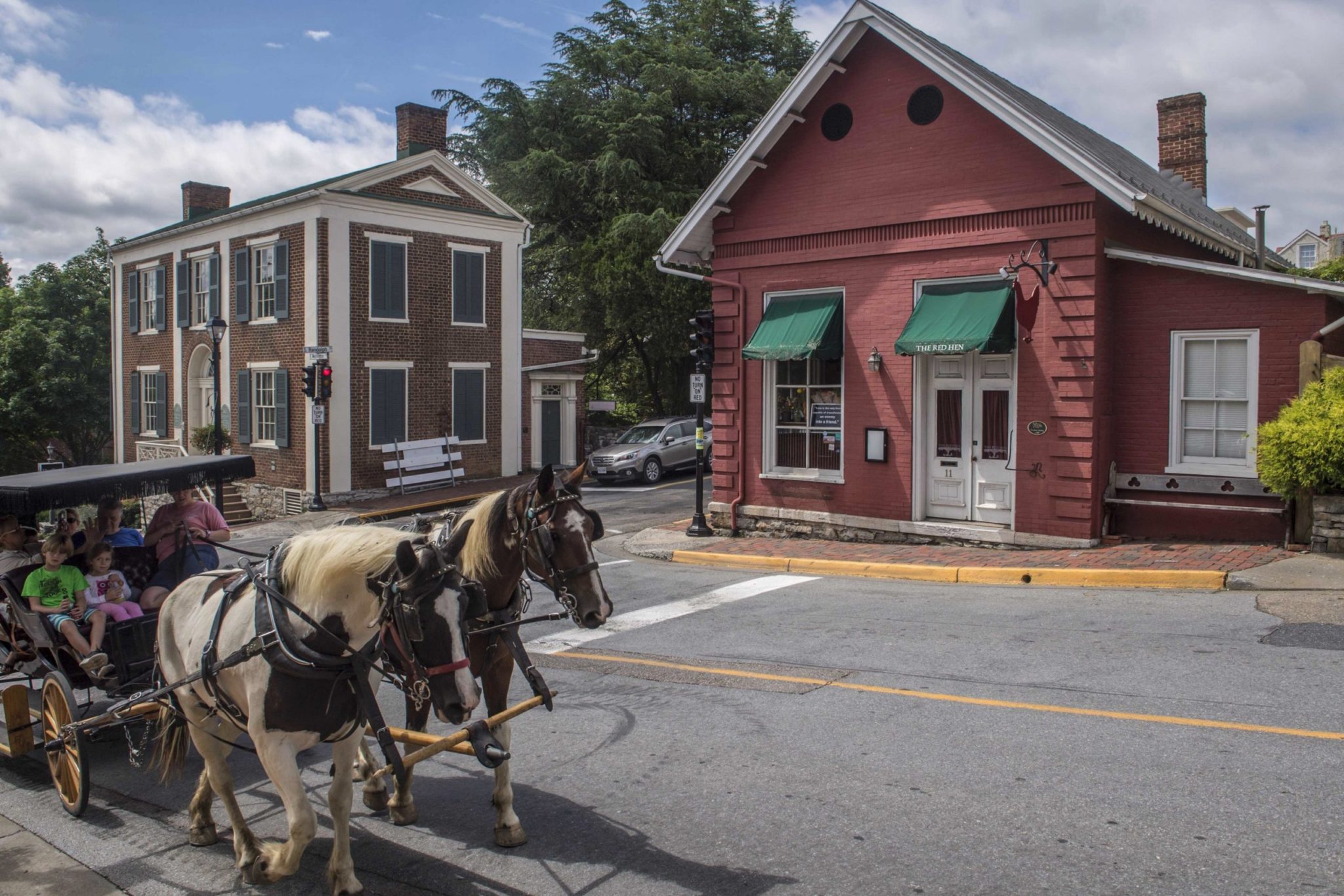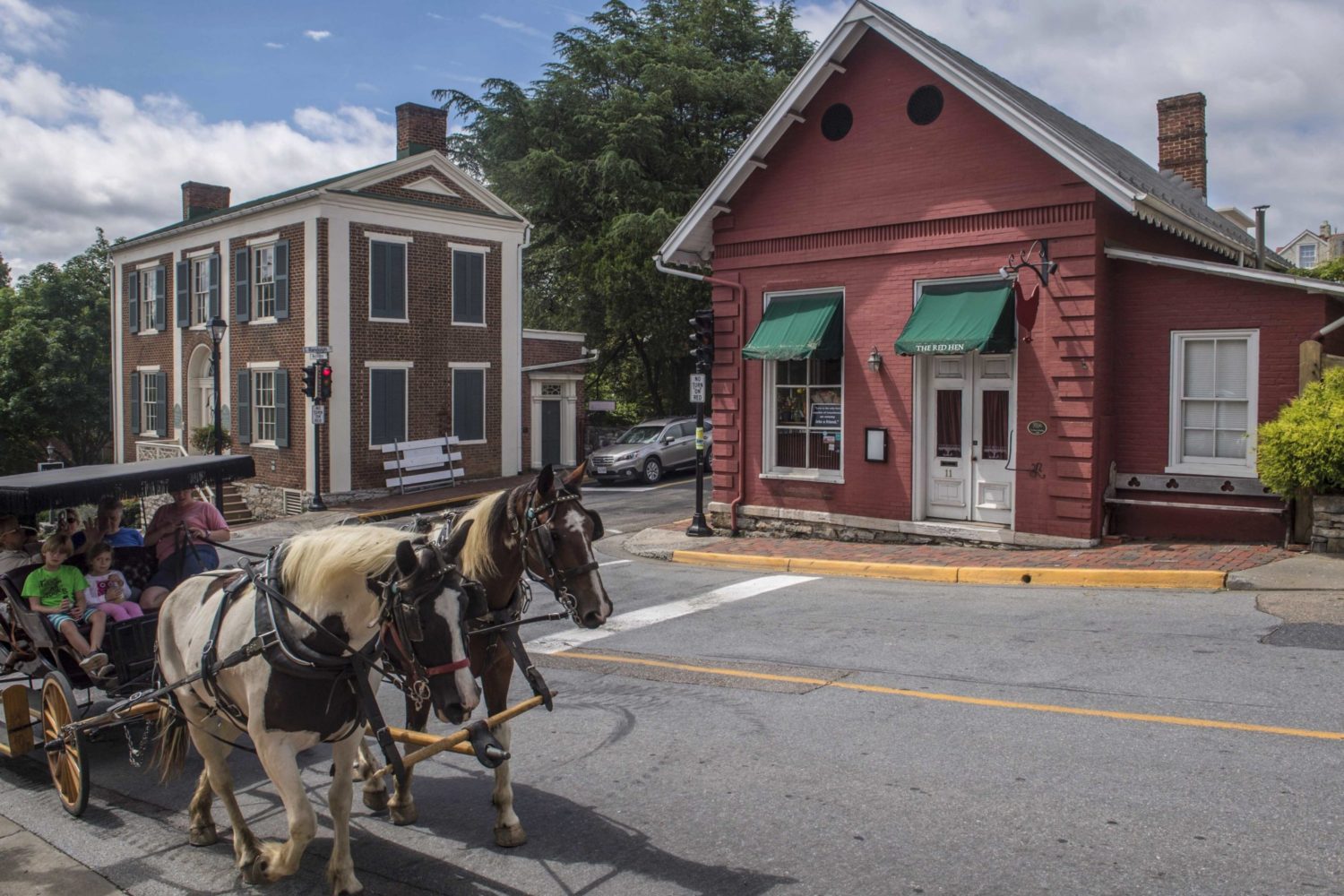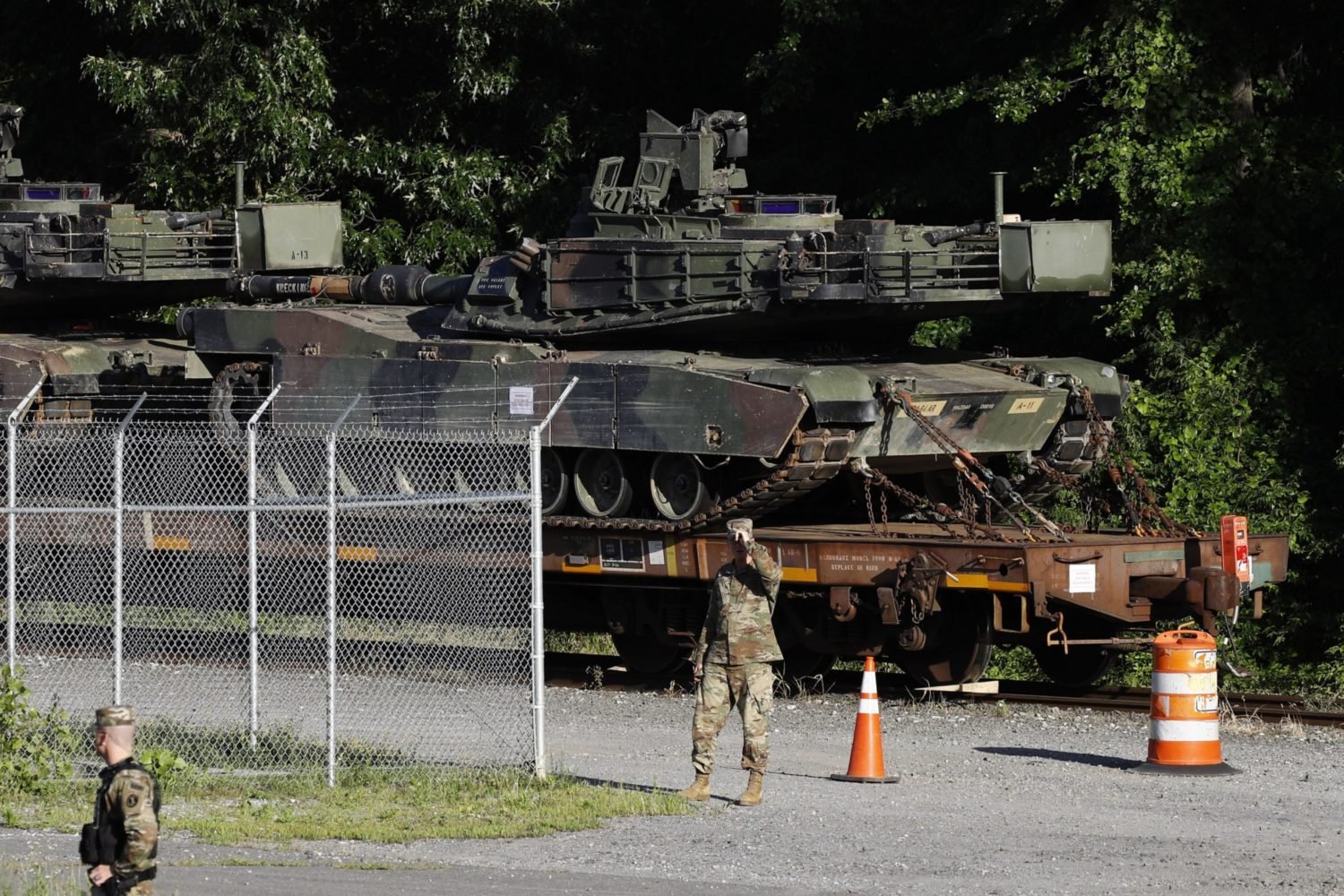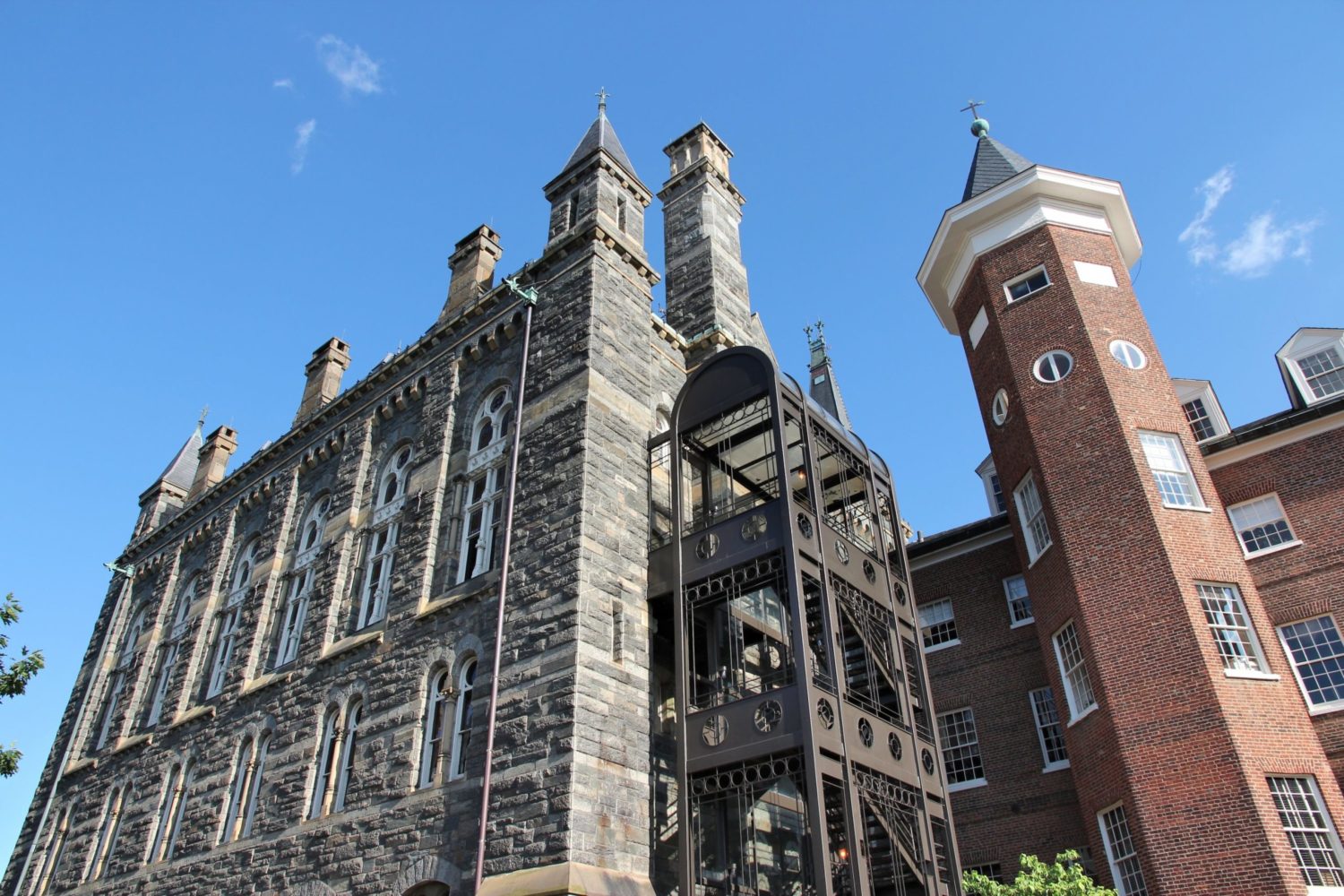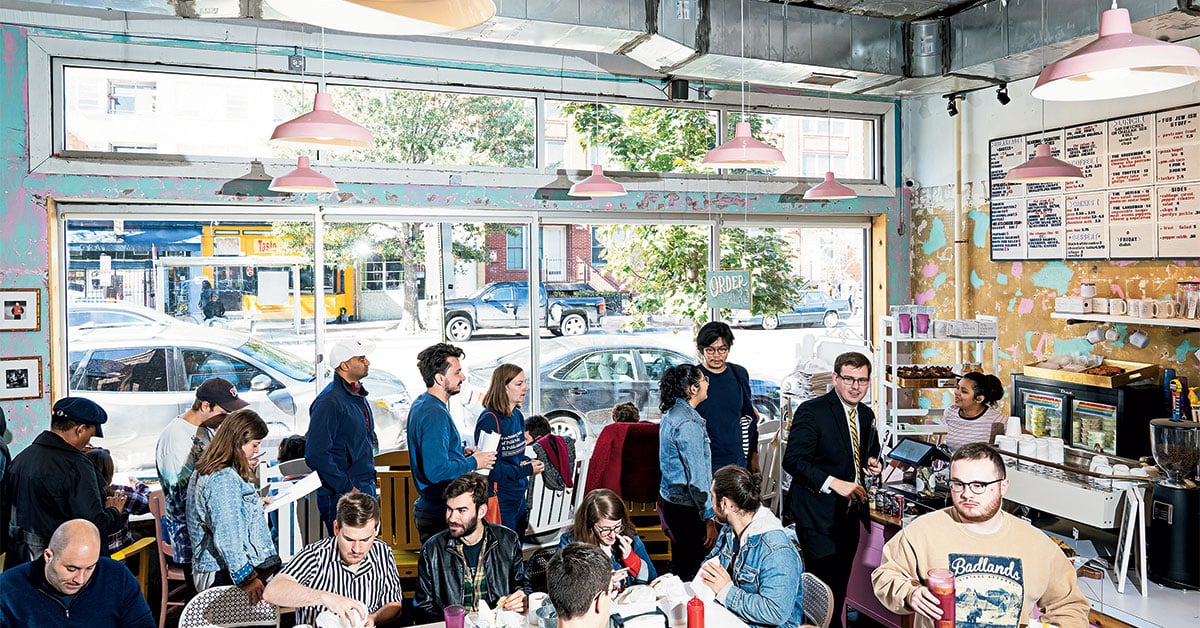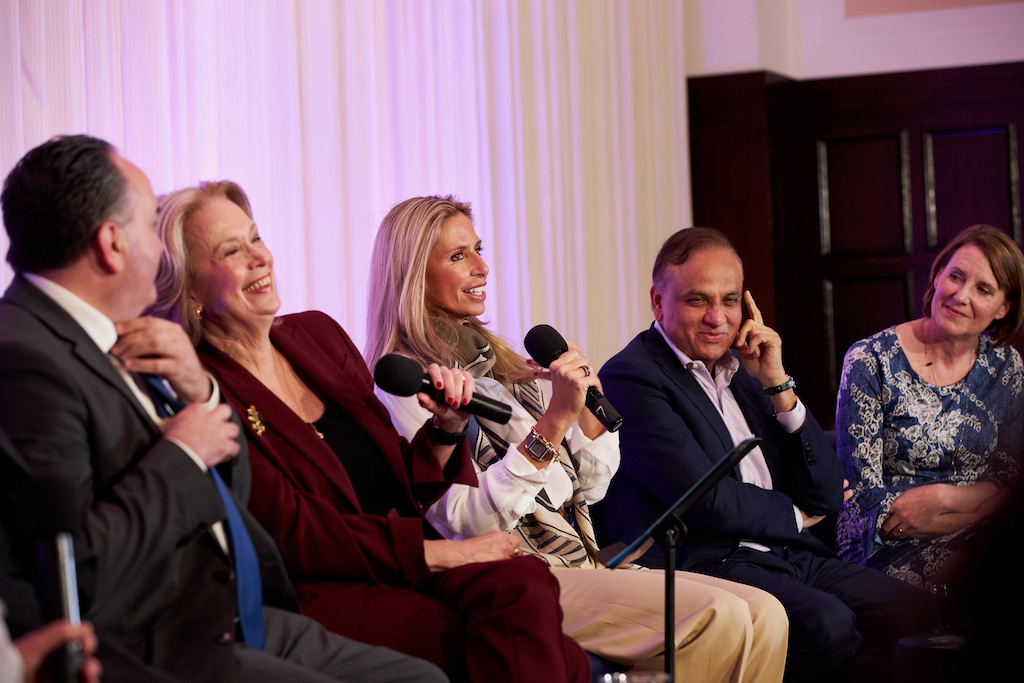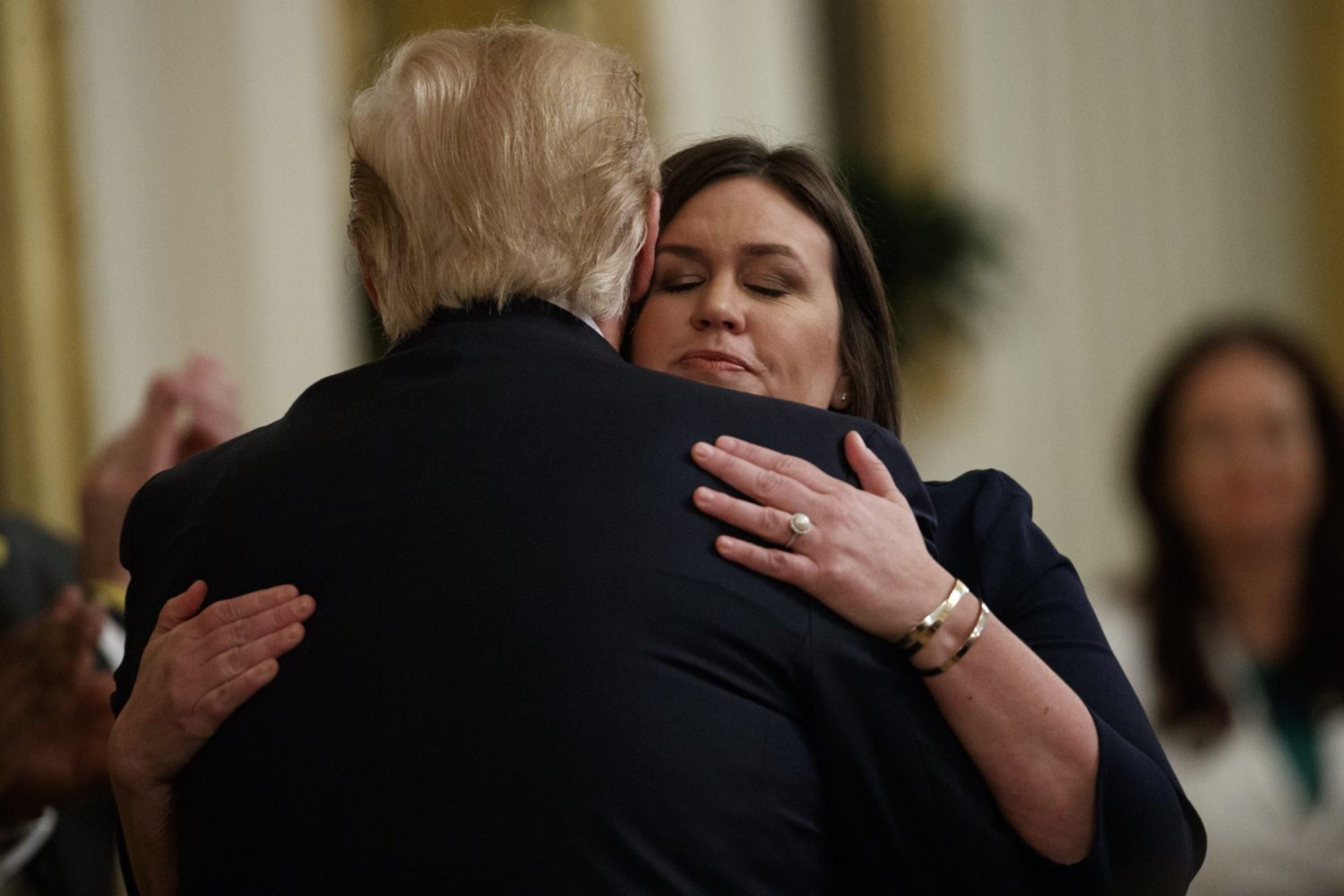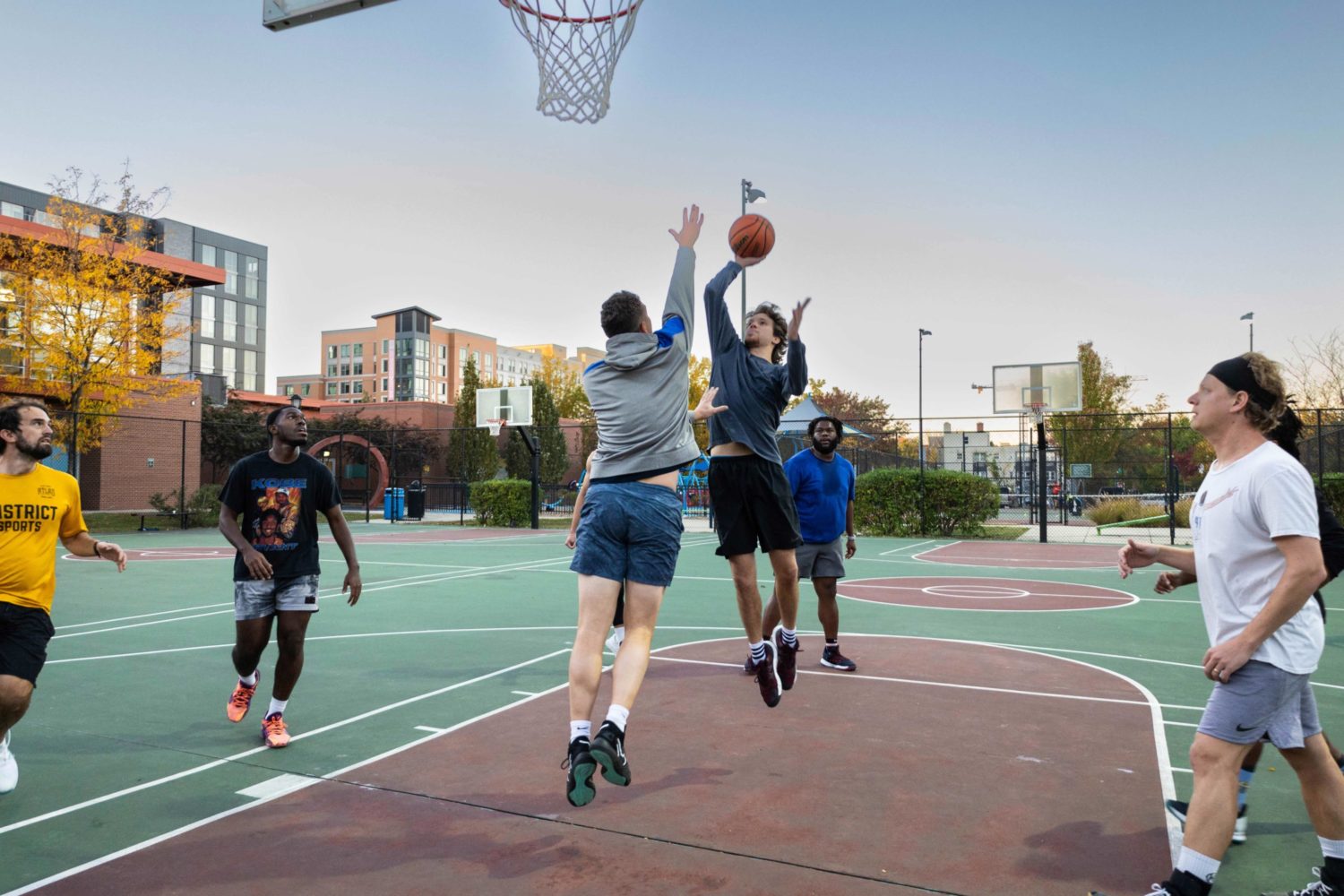On Friday, June 22, 2018, White House press secretary Sarah Sanders was asked to leave the Red Hen, a farm-to-table restaurant in Lexington, Virginia. I grew up in this idyllic town nestled in the Appalachian Mountains and then spent a decade overseas working to avert war. I used to feel countries riven by deep political divisions were very far away from home, but I now see echoes of their predicaments here. What I know from advising governments on how to prevent election violence, and watching my own town survive political turmoil, is that things are going to get worse, maybe a lot worse. But there’s still time to change course.
This time last year, I brought my two little girls to Lexington for a few weeks of summer camp, river tubing, and fireflies. Without knowing it, I’d arrived just in time to witness my town become the center of a national debate over civility and endure the grueling churn of political upheaval.
The events in Lexington followed a predictable pattern of conflict. After the initial reports, actual details were slow to emerge. By the time I dropped the kids off at camp Monday morning, false and polarizing information—for example, that the restaurant owner had chased Sanders down the street and organized pickets at other restaurants—was amplified on social media. The owner of the restaurant, her family, the mayor, the police, and the farmers who supplied the restaurant received death and other threats, and the Ku Klux Klan initiated a recruitment campaign in neighboring counties. Workers at unaffiliated restaurants with the same name in DC, New Jersey, and California were flooded with complaints and even threats. In the surge of anger and misinformation, many people felt compelled to take sides.
Worryingly, this story reflects broader trends that are playing out all across the United States. The Pew Research Center documented a dramatic increase in political polarization well before the end of the Obama Administration. The most recent public information from the FBI showed a 17 percent increase in hate crimes in 2017—a possible result of all this animosity. These and other indications suggest we are likely to see more incidents of election violence in the United States.
Lexington can offer lessons for how such violence can be averted. Despite personal threats, many local leaders–elected and unelected–stood in solidarity with one another above the national din and emphasized the enduring strength of our community. Clergy at my church and others preached about moving forward together to their bipartisan congregations. Local police tapped regional reinforcements—not in SWAT gear. The Lexington News-Gazette staff worked tirelessly to correct inaccuracies that were fueling division, going door to door downtown in search of information on the “chase” that never happened. Civil society groups like the Rockbridge Civil Discourse Society, a group of political opponents who began gathering in 2016 to talk about their differences over drinks, were reinvigorated. And at picnics, Fourth of July fireworks, and during the free Friday concerts, people told me over and over how they’d been ‘extra friendly’ across the aisle these weeks. Amid the anger, there was also a local nice-off.
These are small steps, but they can make a big difference. There are many reasons why violence erupted in Charlottesville and not in Lexington, but one of them may be that Lexington learned from Charlottesville’s tragedy. As a nation, we also must learn those lessons if we want to prevent violent incidents from happening again.
We know intuitively, and from decades of peacebuilding overseas, that the days surrounding an election will be both our greatest vulnerability to political violence and the moment we are least able to counter it. Instead, we need to prepare well in advance, today. This means better understanding the risks and marshaling the resources that will allow us to re-weave our communities and counter violence effectively.
First, we should gather information on where and under what circumstances political violence is most likely in the United States. This is a role that the United Nations or nongovernmental organizations play abroad; it involves systematically gathering information to seek out patterns, predict potential hotspots, and allow authorities and other community groups to shift resources to those areas. In the United States, researchers can help build the map, but the allocation of resources and response preparation will require leadership at the local level.
Second, local communities should begin thinking about 2020 and what role they can play in violence prevention, early warning, and rapid response. Networks like Peace Direct, Bridge Alliance, and the Listen First Coalition have already been cataloging and convening community organizations across the country, but much more could be done to establish a real early warning network, conduct training in de-escalation, organize call centers or social media platforms to push back against false narratives, and open new channels of communication between mayors, the police, elections staff and volunteers, local media, and community organizations.
Finally, each of us must play our role to de-escalate tensions by checking the accuracy of inflaming reports—especially early ones—and by resisting the psychological impulse to demonize our political opponents.
I have seen these tools work overseas: it is time we took them more seriously at home.

